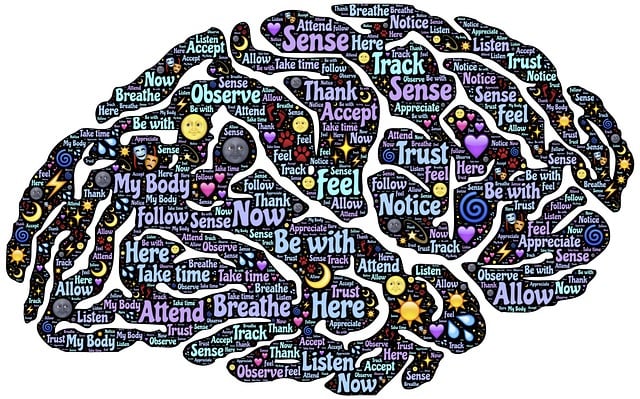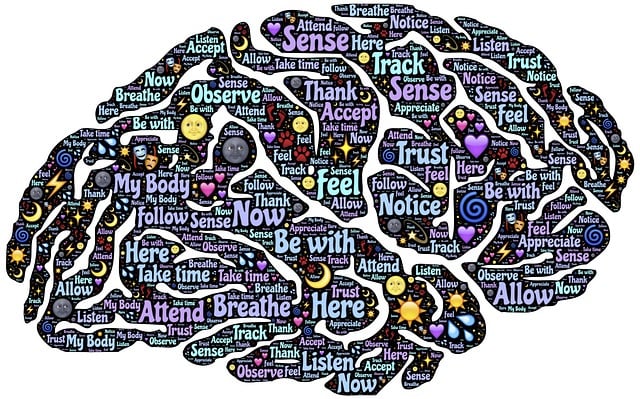Resilience is key to well-being for elderly individuals facing major life transitions like retirement or loss. Using the RFM framework (Risk, Vulnerability, Resources), therapists can tailor interventions such as Compassion Cultivation Practices to build emotional resilience and coping mechanisms. Targeted resilience-building exercises, cultural sensitivity, effective communication, and stigma reduction create a supportive environment. Therapy offers seniors safe spaces to process change, fostering positive mindsets and enhancing overall well-being during life shifts, ultimately improving quality of life. (SEO keywords: Therapy for Elders Major Life Transitions)
In today’s rapidly changing world, understanding and building resilience among the elderly population is more crucial than ever. This article explores the power of RFM (Risk, Frequency, and Monetary value) analysis in predicting and preparing seniors for major life transitions. We delve into strategies for identifying these transitions, implementing effective resilience-building exercises, and highlighting the therapy role in navigating these changes. By understanding these aspects, we can enhance the overall well-being of our aging population.
- Understanding RFM and Its Impact on Elderly Resilience
- Identifying Major Life Transitions in the Elderly Population
- Implementing Effective Resilience-Building Exercises for Seniors
- The Role of Therapy in Navigating Life Changes for Elders
Understanding RFM and Its Impact on Elderly Resilience

Resilience is a critical aspect of well-being, especially for elderly individuals navigating major life transitions. Understanding RFM (Risk, Vulnerability, and Resources) provides a framework to assess and enhance emotional resilience in seniors. This concept recognizes that individuals face various risks and vulnerabilities during life changes such as retirement, loss of a spouse, or moving to new living arrangements. By identifying these factors, therapy for elders can be tailored to address specific challenges.
For instance, emotional well-being promotion techniques, including mood management and emotional regulation strategies, can be incorporated into the care plan. These exercises help seniors build coping mechanisms to manage stress and maintain stability during turbulent times. Through such interventions, they gain the tools to adapt and thrive, ensuring their resilience is strengthened for whatever life throws their way.
Identifying Major Life Transitions in the Elderly Population

Major life transitions often present unique challenges for the elderly population, requiring a thoughtful approach to support their resilience and well-being. As individuals age, they may experience significant shifts such as retirement, loss of loved ones, relocation, or changes in health status. These transitions can lead to feelings of uncertainty, stress, and potential mental health concerns. For instance, moving to a new care facility or adapting to reduced mobility can disrupt established routines, fostering anxiety and depression.
Understanding these life transitions is crucial for therapists and mental health professionals when designing interventions. The implementation of Compassion Cultivation Practices (CCP) has shown promise in enhancing resilience among the elderly. CCP involves mindfulness-based techniques to foster self-compassion and connect individuals with their communities. Additionally, a comprehensive risk assessment is essential, considering factors unique to the elderly, as part of any mental health policy analysis and advocacy efforts. This ensures that interventions are tailored to address the specific needs and vulnerabilities of this demographic during life’s inevitable shifts.
Implementing Effective Resilience-Building Exercises for Seniors

Implementing effective resilience-building exercises for seniors is a critical aspect of therapy for elders undergoing major life transitions. These activities are designed to equip older adults with coping strategies that enhance their mental well-being and adaptability in the face of challenges. Exercises should be tailored to cater to the unique needs and capabilities of this demographic, considering factors such as physical health, cognitive function, and cultural background. Cultural sensitivity in mental healthcare practice plays a significant role; understanding and respecting diverse cultural beliefs and practices can significantly improve engagement and outcomes.
Communication strategies are vital tools in resilience-building initiatives for seniors. Therapists should employ clear, empathetic, and age-appropriate communication to ensure older adults feel heard and understood. Addressing the mental illness stigma reduction efforts is also essential, as it fosters a supportive environment where seniors feel comfortable discussing their emotions and seeking help without fear of judgment. Through culturally sensitive communication and tailored exercises, resilience-building interventions can effectively empower seniors to navigate life’s transitions with greater ease and fortitude.
The Role of Therapy in Navigating Life Changes for Elders

Therapy plays a pivotal role in helping elders navigate major life transitions, providing them with essential tools to manage change and build resilience. As individuals age, they often face various life shifts, such as retirement, relocation, or the loss of loved ones, which can be both challenging and emotionally taxing. Professional therapy offers a safe space for elders to process these transitions, fostering open dialogue and encouraging the exploration of feelings and thoughts that may have been suppressed over time.
Through evidence-based practices tailored to their unique needs, therapy empowers seniors to develop effective coping strategies. Mind over matter principles can be instilled, helping them cultivate a positive mindset and boost confidence in their ability to adapt. Risk management planning for mental health professionals is crucial in ensuring elders receive the support they need during these transformations, ultimately enhancing their overall well-being and quality of life as they embrace new chapters.
Resilience is a vital asset for seniors navigating life’s challenges, especially during major transitions. By understanding RFM and its impact, we can design effective resilience-building exercises tailored to the unique needs of the elderly population. Identifying key life changes that often affect seniors allows us to provide targeted support. Implementing these exercises alongside therapy offers a comprehensive approach to enhance their ability to cope and adapt, ensuring a better quality of life as they embrace the challenges that come with aging. This holistic strategy, focusing on both physical and mental well-being, is crucial in empowering elders to face major transitions head-on.








